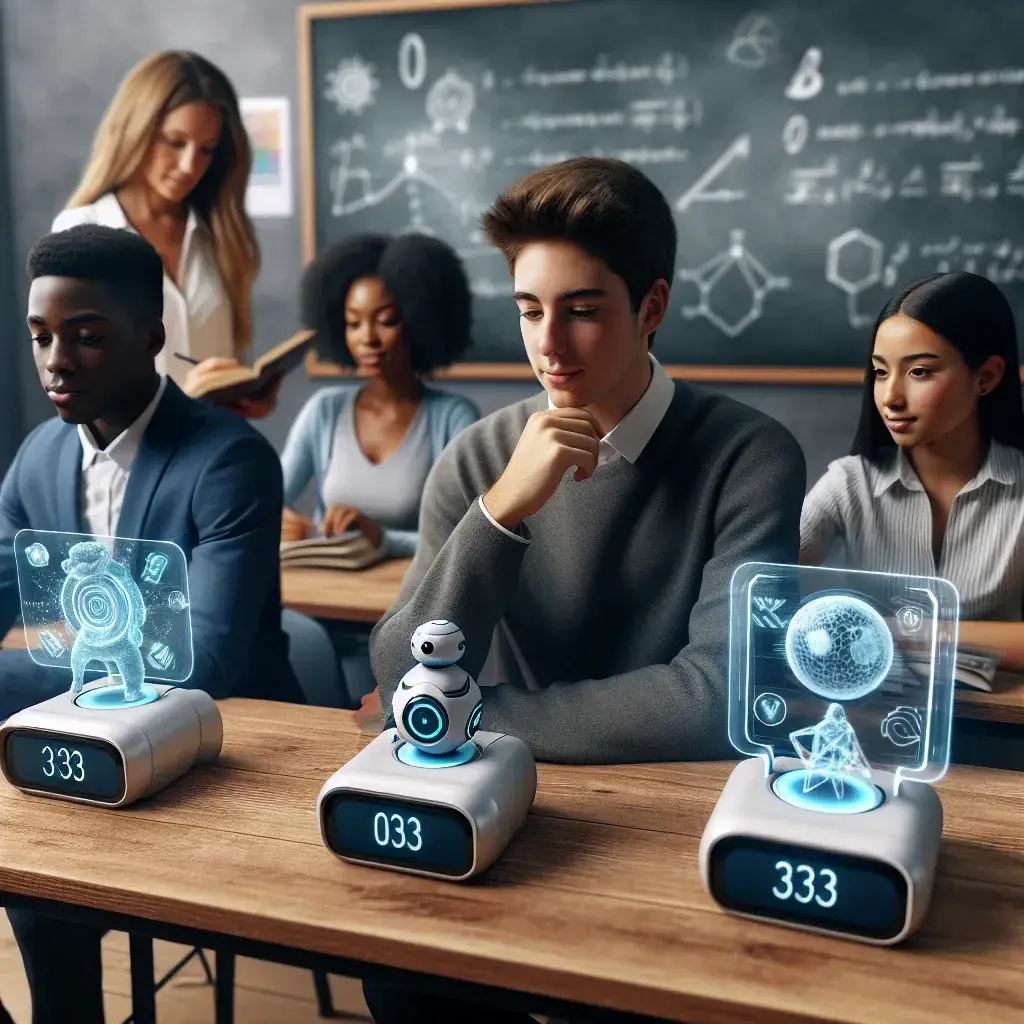AI Tutoring Systems Demonstrate Superior Outcomes to Traditional Methods
Introduction
In recent years, the education landscape has experienced transformative changes due to technological advancements. Among these innovations, AI tutoring systems have emerged as powerful tools, showing promise in enhancing the learning experience. This article delves into how AI tutoring systems demonstrate superior outcomes compared to traditional methods, exploring their advantages, potential challenges, and insights into their future.
The Evolution of Education
Historically, education has relied heavily on traditional methods, characterized by face-to-face instruction, standardized curricula, and limited personalization. The limitations of these approaches have become increasingly apparent, leading educators and students alike to seek more effective alternatives. The advent of AI technology has paved the way for a new chapter in learning.
Understanding AI Tutoring Systems
AI tutoring systems harness machine learning algorithms and data analytics to create personalized learning experiences. Unlike traditional tutoring methods, these systems adapt to individual learning styles, pace, and preferences. By analyzing student performance and providing real-time feedback, AI tutoring systems aim to enhance comprehension and retention of knowledge.
Key Features of AI Tutoring Systems
- Personalization: AI systems tailor lessons to meet the unique needs of each student, ensuring that learning is relevant and effective.
- Immediate Feedback: Students receive instant feedback on their work, allowing them to identify areas for improvement without delay.
- Data-Driven Insights: Educators can access detailed analytics on student progress and engagement, enabling targeted interventions.
- Scalability: AI tutoring systems can accommodate a larger number of students simultaneously, making quality education more accessible.
Comparative Analysis: AI Tutoring vs. Traditional Methods
When comparing AI tutoring systems to traditional methods, several key differences emerge that underscore the advantages offered by AI technology.
1. Learning Pace
In traditional settings, students often progress at a uniform pace, which can hinder those who require more time to absorb concepts. AI tutoring systems allow learners to advance at their own speed, providing additional resources or revisiting challenging topics as needed.
2. Engagement and Motivation
AI tutoring systems often employ gamification elements, interactive lessons, and adaptive challenges to maintain student interest. In contrast, traditional methods may lack the same level of engagement, leading to decreased motivation among learners.
3. Accessibility
With AI tutoring systems, students can access resources anytime and anywhere, breaking down barriers associated with geographical location and availability. Traditional methods, however, often require physical presence in a classroom, limiting accessibility.
The Advantages of AI Tutoring Systems
As educational institutions increasingly incorporate AI technology, several advantages of AI tutoring systems stand out.
Enhanced Learning Outcomes
Numerous studies have demonstrated that students utilizing AI tutoring systems achieve higher academic performance compared to those relying solely on traditional methods. For instance, a report by the National Education Association found that students using AI-based tools scored an average of 20% higher in standardized tests than their peers.
Individualized Learning Experiences
One of the most significant benefits of AI tutoring systems is their ability to customize learning experiences. By analyzing data on student behavior and performance, these systems can create a tailored curriculum that addresses specific learning needs, thereby fostering deeper understanding.
Support for Diverse Learning Styles
AI tutoring systems cater to various learning styles by offering content in multiple formats, such as videos, quizzes, and interactive simulations. This adaptability ensures that all students can engage with the material in a way that resonates with them.
Challenges of Implementing AI Tutoring Systems
While the benefits are compelling, several challenges accompany the integration of AI tutoring systems into educational settings.
1. Initial Costs
Implementing AI technology can require significant investment in infrastructure and training. Schools may face budget constraints that hinder the adoption of AI tutoring systems.
2. Data Privacy Concerns
The collection and analysis of student data pose ethical considerations regarding privacy. Educational institutions must prioritize data security and transparency to build trust with students and parents.
3. Dependence on Technology
Excessive reliance on AI systems may undermine the development of critical thinking and problem-solving skills. Balancing technology use with traditional methods is essential to nurture well-rounded learners.
Future Predictions for AI Tutoring Systems
The future of AI tutoring systems appears promising as technology continues to advance. Here are some predictions:
1. Increased Integration in Education
As more educational institutions recognize the benefits of AI, it is likely that AI tutoring systems will become integral to curricula worldwide. This integration could redefine teaching and learning methodologies.
2. Continuous Improvement through Data
AI systems will continue to evolve, utilizing machine learning to refine their algorithms and enhance user experience. As they gather more data, the effectiveness of these systems will improve, resulting in even better learning outcomes.
3. Expansion of Accessibility
AI tutoring systems will facilitate education for marginalized populations, ensuring that quality learning resources are available to everyone, regardless of their background.
Conclusion
As education continues to evolve, AI tutoring systems stand out as a significant advancement, demonstrating superior outcomes compared to traditional methods. By offering personalized learning experiences, immediate feedback, and enhanced engagement, these systems are reshaping the future of education. While challenges remain, the potential benefits far outweigh the drawbacks, making AI tutoring an indispensable element of modern learning. As we move forward, embracing this technology will empower educators and inspire students to achieve their fullest potential.

